Causality and free will. They would seem to conflict with one another. Below is a short essay that expresses my take on the paradox. If we're able to get some good discussion out of this, I may attempt a longer dissertation on the concept, with references and everything!

Source

Fate. Destiny. Divine will. We laugh at these ideas. Unless they are meant as poetic hyperbole or metaphoric mythology, we who live in the twenty-first century cast such archaic concepts into the waste-bin of history. Democracy and freedom are the icons of our day. We who glory in the moral autonomy of self cannot abide a great puppet master in the ether who guides or commands our actions, whether that puppet master comes in the form of three divine sisters snipping at the Thread of Life, or one omnipotent omnibenevolent world-spirit who casts men's souls into heaven or hell at its pleasure. Such would be an attack on freedom and moral agency, the very foundations of our American political system. Free will is the order of the day, and, as Doc in Back to the Future councils, “If you put your mind to it you can accomplish anything.” However, this conception of “free will” is as naïve as the ancient idea of “God's will”.
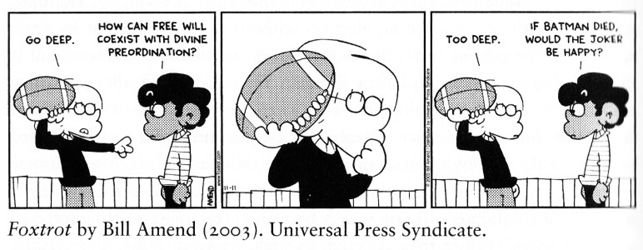
Source
What does it mean to have “free will”? We use and hear the phrase all the time, but rarely do we bother to examine its implications. Will is desire. Will is the feeling of want, the feeling of need. But more than that, will is one's ability to choose one's wants and needs. To be free, on the other hand, is to lack restraint. Free will, therefore, can be defined as the ability to choose one's wants and needs without restraint.
But what kind of restraint are we talking about? Free will is not simply freedom from the physical restraint of another conscious being. If someone puts a gun to your head and demands that you kill your family, most people would agree that you still retain your ability to choose otherwise. You retain your freedom of will. Despite the knowledge that a bullet will enter your brain in seconds, you can still tell the gun-wielder to go jump in a lake.
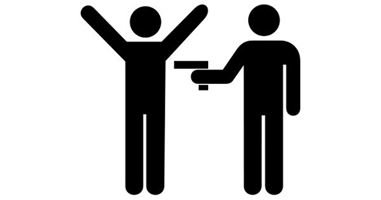
Source
So what is it? Maybe you're thinking that free will has nothing to do with the physical world. That it's simply a thought, a feeling, a gift from God beyond understanding. If you give it further thought, perhaps you will declare that free will is the ability of a man's soul or mind to stand outside the realm of reality, and that to own such a will is to have wants and needs that are independent of any cause.
But of course this is ridiculous. You want to eat a chocolate bar because your body is low on nutrients, or because you want the pleasure of a sweet taste, or because the ingestion of chocolate gives you the love you never received from your mother as a child. Somebody else needs to start a fire because he is in the woods on a winter-chilled night and dressed only in a swimsuit, or because his body is low on nicotine and he wants to smoke a cigarette, or because he's developed an insatiable liking for the dancing flame. Because. By cause.

Source
All desires have a cause, or an infinite number of them. Choice is dependent on value. One chooses from A, B, or C based on his perception of their respective values to him. Thus freedom, as most people think of it, is a nonsensical illusion, a word that people toss through the air like some unknowable hot potato.
Some of you reading this essay are feeling a fiery anger rise from your stomachs. “How dare he claim that desire is dependent on Cause and Effect! My desires are totally contradictory and nonsensical. Reason has nothing to do with it! In fact, if I were so inclined, I'd kill myself this instant just to prove the incredible freedom which I possess.” Well, maybe so. But if you were really so stubborn and foolish as to end your life, it would still be because you wanted to prove the verity of a long-held belief.

Suicide. Don't Do It.
Such irrational rebelliousness brings up an interesting point though: reason and the Law of Causality are not the same thing. “Cause and effect” is a relationship out there in the world, independent of anyone's perception of it, while reason is the conscious method by which man catalogs the events which he perceives in his environment. Reason is the conscious method by which we come to decisions, make choices, and live our lives. But man's conscious perception is finite, and reason is therefore fallible.

There is another method by which we catalog the events in our environment, and it is a method that has existed long before our reason, or our thought, or our self-awareness. That method is emotion. “Feelings.” Our emotions are the sum of the sub- or semi- or unconscious stimuli that we perceive in our environment. Our perception of these events is also finite, however, and emotion is just as fallible as reason (if not more so). These are the imperfect and often contradictory methods which make up our consciousness, and it is precisely this internal opposition that makes possible our warring thoughts and desires. But make no mistake: both emotion and reason are determined by cause and effect.
This moment, your sitting here reading this essay, is a result of an infinite number of previous causes. The causal chain that has led you to this sentence, if it does not reach back through to infinity, stretches at least as far as the Big Bang or something similar. BANG! Trillions and trillions of tiny particles are spewed forth by an explosion of inexplicable heat and energy.

Source
This swarm of matter spreads, cools, and swirls. Gas clouds form stars, and stars form galaxies. Extraneous matter congeals into a little blue dot orbiting our sun. An atmosphere forms in the sky, and it sends an oceanic deluge down upon the hot dry earth. Life springs from the primeval sludge: amoebas evolve into fish; fish flop onto the land as amphibians; dinosaurs rule the world for a brief sixty million years; mammals scavenge for leftovers; primates wiggle their thumbs; Homo erectus creates fire; Homo sapiens sapiens creates art and culture and thought. Philosophy flowers in Greece. Rome conquers the known world. Christianity stifles Europe in a thousand years of darkness. Reason is reborn, men become Enlightened, and the technology is created that snuffs out millions of lives in two World Wars. Communism is born and dies, and the United States remains as the one true superpower.

Your mother bares a child. This child eats and sleeps and grows. You become who you are, the foundation of who you will yet be. And, finally, you read this sentence. Your values, your goals, all your wants needs and desires are the result of both the biologic structure of your DNA and the events in that environment in which you grew and played and thrived. This moment exists by necessity.
Perhaps, dear reader, the anger in your gut has been replaced now by a sickened emptiness, even by nausea. How can this be? How can a person go on living in a world where every action and every choice to be made has been determined before his even coming into existence? If one accepts this “materialistic determinism” why should he bother to put effort into anything at all? If something will be, it will be. Period. Better to lie down, take a nap, and expire on the spot than to chase after delusional demons like free will and hope and effort.
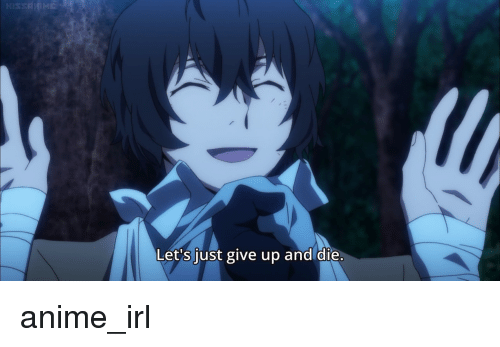
Source
Even more important is the question of moral autonomy. A murderer commits a murder because that murder is the sum of all his previous causes. How can society punish a man who has no control over his destiny? How can we throw a stone when our very decision of whether or not to throw that stone is just as determined as the murderer's murder? Perhaps we need this naïve conception of free will because it allows us to live meaningful lives and exist in an ordered and stable society.
But we are missing the point. Just because desire has a cause, and choice is dependent on those desires, this does not mean that the capacity for choice can ever be abolished. Though we accept that our present state of mind is a result of an infinite number of previous causes, this does not mean that we will ever have a perfect knowledge of them. Sure, if you could somehow know all the past events bearing down on this ephemeral present, you could predict your entire future. You would have every one of your actions mapped out before they happened, and, in that instant, volition as you know it would cease, and you'd perhaps watch yourself from outside yourself as you body-surfed through existence on a wave of predetermined motion.

But this can never be. While existence is infinite, man's mind is finite, and perfect knowledge can never be attained. Choice – the act of judging various values and comparing the efficacy of varying actions – will always be a part of human life. And the laws and justice system of the state are a vital link in the causal chain that directs all our actions.
In fact, understanding the nature of the determined will makes choice that much more important. “If you put your mind to it you can accomplish anything.” This is the message of the old view, and it is as ridiculous as it is irresponsible. With effort and knowledge you can achieve many things, but not anything. You cannot wake up at sixty and become a professional basketball player. You cannot graduate first in your class at Harvard if you have a 70 IQ. You cannot enact a contradiction, and you will not achieve what you cannot. We are all thrown into the world with specific traits, strengths, and weaknesses, and the events in our lives will help or impede us as we strive for our highest potential.
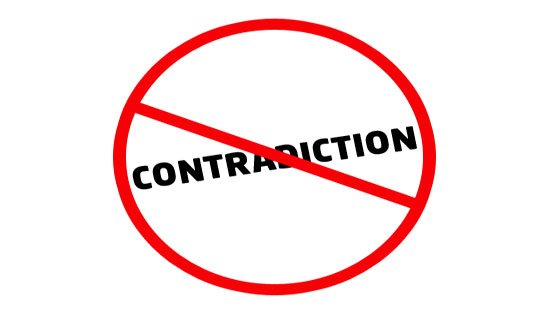
Only by understanding and accepting your limitations as both a finite human being and a fallible individual will you find success. Only by learning about yourself and the world can you achieve happiness and satisfaction. Every choice is important. Every effect of today is a cause of tomorrow. When we choose a path on which to travel, we also choose to cast aside a hundred, a thousand, other such paths. This is why choice is vital, and understanding so necessary. As our knowledge about ourselves and the world increases, so does our freedom – freedom as the range of motion, freedom as the capacity to achieve our ends. Such is the only freedom that could ever be.
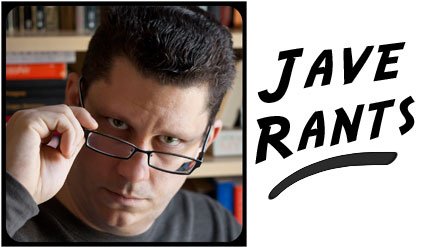
Thanks for reading! Let me know if you've found this to be interesting and/or valuable and whether you’d like to see more. And I’d love to continue the discussion in the comments.
